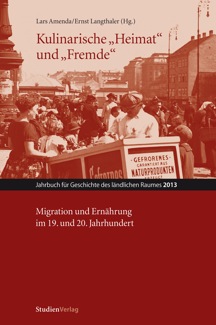Die Küche der „Anderen“
Chinesische Gastronomie und Ethnizität in Westeuropa 1950–1980
DOI:
https://doi.org/10.25365/rhy-2013-12Abstract
In the early post-war period, the economy and industry in Western European countries such as Great Britain and West Germany flourished and attracted many labour migrants from Southern Europe in particular. The establishment of consumer societies fuelled mass tourism and new ways of leisure. Eating out in international restaurants became subsequently more popular, especially in cities. In this chapter, I explore how and why the Chinese cuisine benefited from the new culinary patterns of consumption. Chinese caterers did not only focus on the food – that was very much ‘westernised’ to attract more customers. The Chinese restaurant and its interior decoration were designed to represent China and her culture. The ‘otherness’ of Chinese people and Chinese food was emphasised by the Chinese owners and turned the visit of a Chinese restaurant into a culinary short holiday. The article examines the adaption of Chinese food in Britain, focusing on London, and compares it with the development in other countries such as the Netherlands and West Germany. Remarks about Chinese cuisine in rural settings conclude the chapter.


